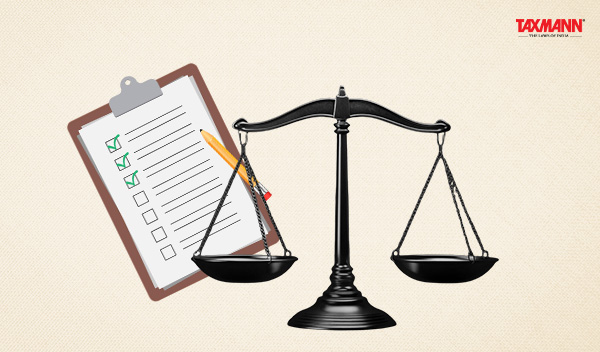
Raji Nathani & Gopal Nathani – [2025] 174 taxmann.com 1190 (Article)
The “reasons to believe” requirement is a fundamental safeguard in the reassessment process under Section 148. It ensures that the power to reopen assessments is exercised judiciously, balancing the need to recover escaped income with the protection of taxpayers’ rights. As stated in Supreme Court, in the landmark case of Indira Nehru Gandhi v. Raj Narain AIR 1975 SC 1590, affirmed that the rule of law is an essential feature of the Constitution and also the fundamental features of Act cannot be changed in Kesavananda Bharati Sripadagaclvaru v. State of Kerala AIR 1973 SC 1461. Without valid and well-documented reasons, the entire reassessment process can be rendered legally invalid, making this a critical aspect of tax administration in India.
Sub-section (3) of present section 148A states that the Assessing Officer shall, on the basis of material available on record and taking into account the reply of the assessee furnished under sub-section (2), if any, pass an order with the prior approval of the specified authority determining whether or not it is a fit case to issue a notice under section 148 to reopen an assessment. Similarly, clause (d) of previous section 148A state as under:
(d) decide, on the basis of material available on record including reply of the assessee, whether or not it is a fit case to issue a notice under section 148, by passing an order, with the prior approval of specified authority, within one month from the end of the month in which the reply referred to in clause (c) is received by him, or where no such reply is furnished, within one month from the end of the month in which time or extended time allowed to furnish a reply as per clause (b) expires:
None of the above has mention of any requirement of recording of reasons in their order. In this scenario the Assessing Officer often would decide the initiation of reassessment on his own whims and fancies by simply reproducing assessee’s reply verbatim without having to write any reasons of his own for choosing to issue notice u/s 148 for reassessment.
The facts of the case are that in Neena Singh Thakur v. Pr. CIT [2025] 174 taxmann.com 732 (HP.), the Assessing Officer issued show cause notice under section 148A(b) on the ground that he had information that the assessee had purchased an immovable property worth Rs 1.21 crores, however, no detail related to same was disclosed in return. Even when the petitioner replied to the show cause notice and also submitted all the necessary documents in support of its case the Assessing Officer in passing a detailed order running into almost 10 pages observing that the case is at a preliminary stage and, therefore, the contention of the petitioner is not acceptable and the same requires detailed examination.
Reading clause (d) of section 148A which is similar to the present section 148 A (3) the High Court of Himachal Pradesh directed that:
- it is incumbent upon the Assessing Officer to decide that so and so much amount of income has escaped assessment and also record reasons for the same in his order u/s 148A (d).
- The Court held that the Assessing Officer needs to realise that notice under section 148 does have serious civil or evil consequences and cannot be passed so lightly and reasons for the same have to be recorded in the order itself.
Failure to give reasons amounts to denial of justice. Reasons are live links between the minds of the decision-taker to the controversy in question and the decision or conclusion arrived at. Reasons substitute subjectivity by objectivity. The emphasis on recording reasons is that if the decision reveals the ‘inscrutable face of the sphinx’, it can, by its silence, render it virtually impossible for the Courts to perform the appellate function or exercise the power of judicial review in adjudging the validity of the decision. Right to reason is an indispensable part of a sound judicial system.
Click Here To Read The Full Article
The post [Opinion] Rule of Law – A Fundamental Pillar of Justice appeared first on Taxmann Blog.

